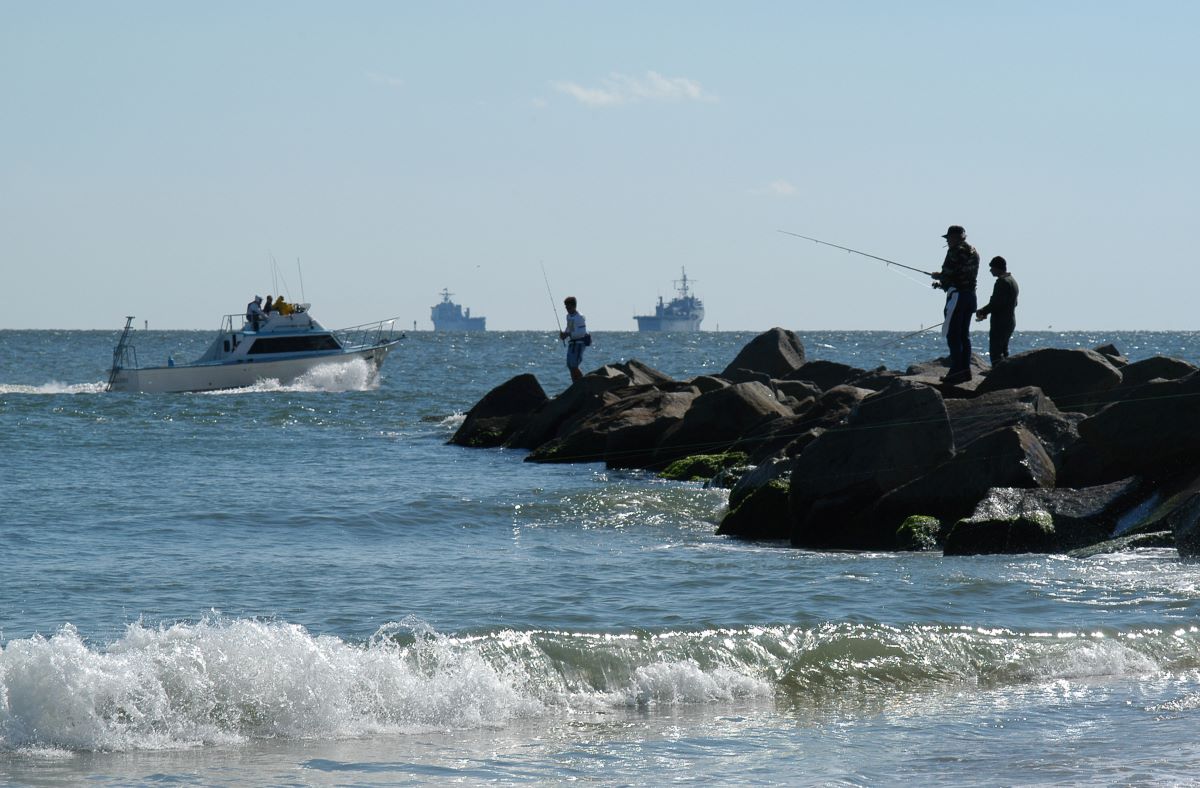
The anglers have spoken.
And they apparently did not spare using colorful language to express their thoughts on proposed temporary mandatory harvest reporting rules state regulatory agencies must enforce later this year.
Supporter Spotlight
The North Carolina Division of Marine Fisheries and North Carolina Wildlife Resources Commission received a combined more than 3,700 public comments on the proposed rules at the close of the comment period May 20, fisheries Director Kathy Rawls said Thursday morning during the fisheries commission’s quarterly business meeting in Beaufort.
“All I’ll say about them right now is that Catherine (Blum) has a long list of cuss words that she had to redact from the information so that’s kind of where we are,” Rawls said, referring to the division’s rulemaking coordinator.
The comments will be presented to the Marine Fisheries Commission on June 6 during a special-called meeting in which the commissioners are expected to adopt the temporary rules. The Wildlife Resources Commission, or WRC, is scheduled to meet that same day and is also expected to adopt the proposed rules.
In a move likely to draw even more ire from recreational anglers, the state is axing flounder season this year. The fisheries commission declined during its meeting Thursday to hold a special meeting to discuss alternatives to shuttering the already-short season altogether for 2024.
The division issued a release Thursday afternoon stating that the season will not open for recreational harvest this year because 2023 estimates indicate catch surpassed the quota allowed under the commission’s Southern Flounder Fishery Management Plan.
Supporter Spotlight
Under the proposed rules on mandatory harvest reporting, which are the result of a provision tucked into a controversial law the General Assembly enacted last year, recreational coastal anglers will be required to report harvests of flounder, red drum, speckled trout, striped bass and weakfish.
Related: No 2024 recreational flounder season
The law also requires commercial fishers to list all catch, including finfish, shellfish and crustaceans, that they do not sell to a dealer on their trip-ticket forms. Dealers submit those forms each month to the state, and uses the information reported on the tickets as a means to help manage fisheries resources.
The law dictates that the rules will be enforced in phases over three years. The reporting requirement is set to go into effect Dec. 1, after which time a fisher caught not complying with the law will receive a verbal warning.
Full enforcement of the law is set to kick in Dec. 1, 2026, after which time offenders will face a $35 fine violation. Repeat offenders will face the threat of license and permit suspensions.
Rawls said that division officials hope the General Assembly will push back by one year when the rules go into effect.
A draft special provision that would grant the agencies an extra year is “out there,” she said.
“That was, from our seat, something that we really wanted to better inform the public because I just don’t think folks are aware that this is coming and it is going to be a huge change for people that are fishing these species,” Rawls said. “The division is doing its best to work through this and the timeframe that we’ve been allowed. We’re still hoping for that extension, but we are working as if that will not happen.”
The law was not requested by either agency, but rather a fledgling nonprofit called North Carolina Marine & Estuary Foundation.
Foundation Executive Director Chad Thomas in an interview with Coastal Review earlier this month said the idea behind the law was to bring together two state agencies that have a history of conflict over their shared management of joint fishing waters, fill gaps left by federal reporting surveys, and make North Carolina a pioneer in coastal fish data management.
Upward of 1 million recreational anglers fish in state waters any given year, Rawls said.
“And we’re talking about a recreational harvest with these five fish (species) totaling around 2.5 million fish,” she said.
Rawls reiterated that the new reporting mandate will not replace the Marine Recreational Information Program, or MRIP.
That multi-governmental program uses recreational fishing surveys to estimate total recreational catch.
The new mandatory reporting rule “will just provide another data set that we will have,” Rawls said.
Division and wildlife officials are hashing out the finer details of a reporting system for recreational anglers.
Legislators gave the agencies a one-time, $5 million allocation to set up a reporting system.
During a public hearing last month, officials said anglers will be given the option to report their harvest by scanning a QR code or by going directly to the division’s website. Printed report cards will be placed in bait and tackle shops and other areas for anglers who do not have smartphones or are in areas that do not have cell phone service.
Anglers will be required to provide their fishing license number or first and last name, ZIP code, the types and numbers of species harvested, length of each fish, the area in which those fish were harvested and the gear used to harvest them.
Fishers must report their harvests when they have finished fishing for the day. Those who use printed report cards to record their catch must submit the information electronically by midnight the following day.
Related







